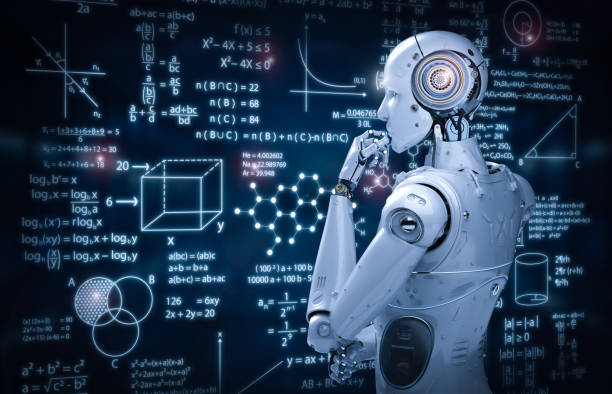
AI/ML Researcher
Industrial AI/ML Researcher Jobs: A Game-Changer for the Manufacturing and Industrial Sectors
Introduction
The industrial sector is undergoing a transformation, powered by artificial intelligence (AI) and machine learning (ML). From predictive maintenance to quality control, AI/ML technologies are helping industries optimize operations, reduce costs, and increase efficiency. As a result, Industrial AI/ML Researchers have become one of the most sought-after roles in the sector.
But what exactly does an Industrial AI/ML Researcher do, and why are they crucial to the success of industrial enterprises?
What is an Industrial AI/ML Researcher?
An Industrial AI/ML Researcher is a professional focused on leveraging artificial intelligence (AI) and machine learning (ML) technologies to solve complex challenges within the industrial landscape. Their research and innovations are primarily centered around improving processes, automating systems, enhancing predictive capabilities, and driving data-driven decision-making in sectors like manufacturing, logistics, energy, and supply chain management.
Key Responsibilities
The responsibilities of an Industrial AI/ML Researcher vary depending on the specific industry or company, but typically include:
-
Data Collection and Analysis:
- Gather large datasets from various industrial processes, including production lines, machinery, sensors, and IoT devices.
- Perform data cleaning and preprocessing to prepare it for AI/ML models.
-
Model Development:
- Design and develop machine learning models tailored to industrial applications (e.g., predictive maintenance, anomaly detection, optimization).
- Experiment with different algorithms (e.g., deep learning, reinforcement learning) to find the best fit for the problem at hand.
-
Performance Optimization:
- Evaluate and fine-tune models to improve accuracy, reduce bias, and ensure they perform well in real-world industrial environments.
-
Automation and Predictive Analytics:
- Develop AI-powered systems to automate repetitive tasks and predict future events (such as equipment failures) based on historical data.
-
Collaboration with Cross-Functional Teams:
- Work alongside engineers, data scientists, and operations teams to understand the practical challenges faced by industries and ensure AI/ML solutions align with business goals.
-
Real-Time Monitoring:
- Develop systems for real-time monitoring of industrial systems to track performance and immediately identify any issues or inefficiencies.
-
Deployment and Integration:
- Deploy and integrate AI/ML models into existing industrial infrastructures and systems.
-
Continuous Research and Innovation:
- Stay updated with the latest AI/ML trends, tools, and technologies.
- Experiment with cutting-edge techniques to create next-generation industrial solutions.
Skills and Qualifications
To excel as an Industrial AI/ML Researcher, candidates typically require the following skills and qualifications:
-
Educational Background:
- A degree (usually at least a Master’s) in Computer Science, Data Science, Engineering, or a related field. A Ph.D. is often preferred for research-heavy roles.
-
Technical Skills:
- Proficiency in programming languages like Python, R, C++, and MATLAB.
- Deep understanding of AI/ML frameworks such as TensorFlow, PyTorch, and scikit-learn.
- Knowledge of big data platforms like Hadoop or Spark.
- Experience with industrial systems, including IoT, sensors, and automation systems.
-
Machine Learning Algorithms:
- Strong grasp of supervised and unsupervised learning, reinforcement learning, neural networks, and natural language processing (NLP).
-
Industry-Specific Knowledge:
- Familiarity with the specific needs and challenges of industries like manufacturing, automotive, oil and gas, or energy.
-
Data Handling Skills:
- Expertise in data analysis, preprocessing, and feature engineering for large datasets.
- Experience working with time-series data and sensor data is a big plus.
-
Problem-Solving and Analytical Thinking:
- Strong critical thinking, problem-solving abilities, and attention to detail.
-
Soft Skills:
- Effective communication skills for presenting complex research to non-technical stakeholders.
- Ability to work in a team and collaborate across departments.
Industries Hiring Industrial AI/ML Researchers
Various sectors are looking for Industrial AI/ML Researchers to help transform their operations:
-
Manufacturing:
- AI/ML can be used for predictive maintenance, quality control, supply chain optimization, and production planning.
-
Automotive:
- AI/ML is used to enhance manufacturing automation, vehicle diagnostics, autonomous driving, and more.
-
Oil & Gas:
- Predictive maintenance of machinery, drilling optimization, and real-time monitoring of industrial processes.
-
Energy & Utilities:
- AI/ML can help optimize energy consumption, improve grid management, and reduce costs.
-
Logistics and Supply Chain:
- Improve routing, inventory management, and predictive logistics with AI/ML models.
Why the Role is Crucial
The demand for Industrial AI/ML Researchers is growing rapidly because these professionals are crucial to unlocking the potential of AI and ML in improving operational efficiency and minimizing costs across industries. As AI technologies continue to evolve, the role of researchers in pushing the boundaries of what’s possible in industrial settings will only become more critical.
AI and ML research in industry aren’t just about theoretical advancements—they’re about solving real-world problems and improving day-to-day operations. This makes the work of an Industrial AI/ML Researcher not only exciting but immensely impactful.
Conclusion
Industrial AI/ML Researchers are at the forefront of transforming industries through technology. With the increasing reliance on data-driven insights and automation, this role offers exciting career opportunities and the chance to work on cutting-edge technologies that will shape the future of industrial operations.

